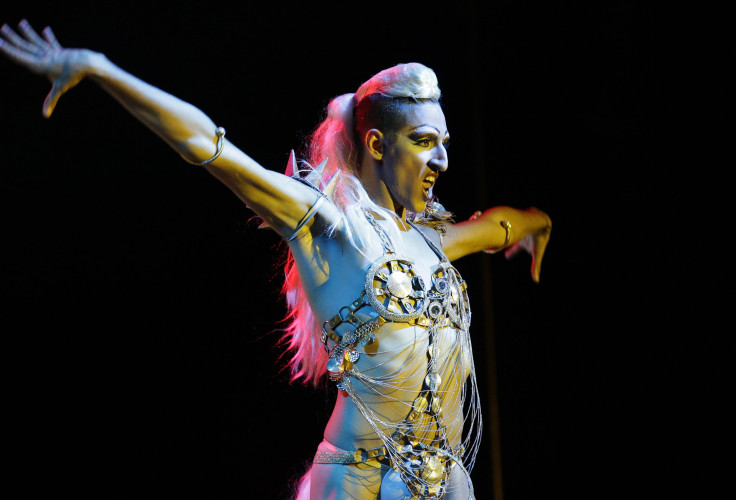Drag Queens Protest Facebook Naming Rules In Controversy Highlighting Company's Focus On Promoted Posts

Drag queens and transgender activists have started a protest campaign against Facebook for forcing them to either register with their real name or get off the site. The crackdown comes as the self-styled socially conscious company’s revenue continues to soar, in part because of its marketing initiatives.
Sister Roma, real name Michael Williams, is a drag queen and a leader of the San Francisco-based Sisters of Perpetual Indulgence advocacy group. Sister Roma is a prominent voice for the local LGBT community but became better known to a wider public after complaining that, after using “Sister Roma” without a problem for six years, he had no choice but to change his Facebook (NASDAQ:FB) name to Michael Williams.
“I was automatically logged out and told my account was suspended because it appears that I’m not using my real name,” Sister Roma told the Daily Dot. “I was instructed to log in and forced to change the name on my profile to my legal name, like the one that appears on your driver’s license or credit card.”
Facebook’s official account policy forbids users from “pretending to be anything or anyone” other than themselves and explains that the “name you use should be your real name as it would be listed on your credit card, driver’s license or student ID.” Users are also permitted to use an alternate name (a nickname or maiden name, for example) on their profile.
The company has maintained that the policy keeps “our community safe,” though supporters have wondered why Williams was allowed to identify as “Sister Roma” for such a long time. The answer, many have speculated, lies in the company’s plan to compel anyone who might be using the site for marketing purposes to give Facebook money for advertising purposes.
Facebook did not immediately return a request for comment from International Business Times.
Roma has denied that he’s ever presented any kind of threat of other users, stating in a Facebook post that the name he was born with “is the name of a victim, a lonely boy who hated himself.” A number of transgender activists have echoed the sentiment after experiencing the same issue with Facebook this week; and that frustration is hardly unique, if the nearly 3,000 signatures on a Change.org petition are any indication.
“This issue is discriminatory against transgender and other nonconforming individuals who have often escaped a painful past,” the petition says, calling on Facebook to allow performers to use their stage names as profile names. “By forcing us to use our ‘real’ names, it opens the door to harassment, abuse and violence.”
Again, Facebook has kept quiet on the controversy but the social media behemoth, which has more than a billion users around the world, already has introduced a new set of gender identifiers designed to make the site more inclusive. When new users are asked to self-identify they have more than 70 options to choose from, including androgynous, bigender, intersex, genderfluid and transsexual.
Facebook has for years now worked to persuade artists, performers and anyone else who might use the site to promote their own brand to not only create a fan page, but invest in it. Indeed, Roma himself admitted that the issue probably isn’t a bigoted corporation targeting a subculture, but a simple matter of dollars and cents.
“Honestly, I feel it is about your profile matching your credit card – it’s all about money,” he said.
Businesses that rely on Facebook marketing went into a momentary flutter in March after reports surfaced that Facebook would cut brands’ “organic page reach” to 1 or 2 percent. Even if a business convinced thousands of people to “like” its page, only a fraction of its posts would show up in their news feed unless that business paid Facebook for wider promotion. Facebook announced in a 2012 post that business pages typically reach 16 percent of their followers organically.
There’s no question that promotion and marketing is a necessary skill for any drag queen hoping to become a local celebrity, as Sister Roma has. Many drag queens fail to make a living at all and, of those that do, it’s a struggle to book appearances telling jokes, singing and hosting at often unpredictable venues. RuPaul Charles is the most recognized drag queen in the U.S., a famous personality who hosts the critically beloved “RuPaul’s Drag Race” television show, but he's an exception.
“While RuPaul’s successes are unprecedented in the modern history of drag, these achievements are no campy accident. From the beginning of his career, RuPaul has been a serious businessman,” Mic.com reported last year.
“After his career began in Atlanta in the 1980s, RuPaul quickly became a master of marketing, branding and self-promotion. … RuPaul became famous by transforming himself into a product for public consumption.”
For any drag queen hoping to replicate that success in the 21st century, Facebook is almost certainly step one.
© Copyright IBTimes 2024. All rights reserved.











